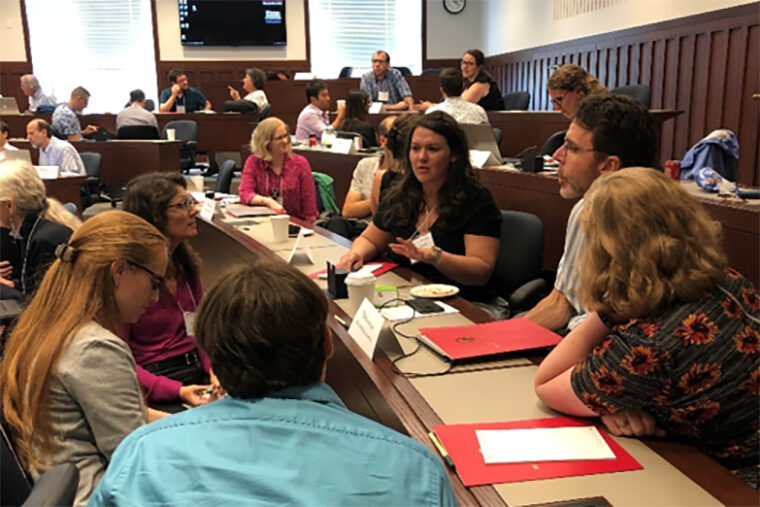Washington University in St. Louis has been awarded a $20,000 “mini-grant” by the Association of American Universities (AAU) to further existing efforts to improve undergraduate education in science, technology, engineering and mathematics (STEM) disciplines.
The funding from the AAU will support faculty development programs and other new resources organized by the Center for Integrative Research on Cognition, Learning and Education (CIRCLE), and includes:
- creating a new CIRCLE Teaching Academy speaker series (2019), with opportunities for interested STEM faculty from the Danforth Campus, School of Medicine and other regional universities to interact directly with the speaker during small-group sessions focused on implementing new strategies in their own classrooms;
- supporting the next CIRCLE conference featuring psychological scientists, STEM discipline-based education researchers and STEM practitioners (2020). This event will bring together individuals to share and learn about evidence-based pedagogies in the classroom; and
- initiating a new blog to stimulate and sustain conversations between and after these events. The content will be focused on research education, but organizers at CIRCLE will strive to make it accessible for all higher-education instructors regardless of discipline or background knowledge.
“We are pleased to have the AAU’s support as we expand opportunities for Washington University faculty to connect with one another and with national experts in psychological science and discipline-based research,” said Mark McDaniel, professor of psychological and brain sciences at Washington University and co-director of CIRCLE. “We envision that the newly funded speaker series and the funding for another CIRCLE conference will enhance the ever-growing community of practice around evidence-based STEM education at Washington University.”
The AAU mini-grants are made possible with support from the Northrop Grumman Foundation, which supports diverse and sustainable national programs to enhance the STEM education experience for students and to provide STEM teachers with the training and tools they need to be successful in the classroom.
